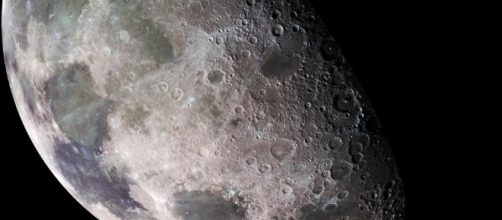Life is a peculiar thing, which is why it’s only found on Earth thus far. However, scientists from around the world are attempting to locate life elsewhere, and one of Saturn’s moons could be the first place researchers find this elusive thing.
The moon in question is called Titan, and for years scientists have concluded that this moon could be home to life of some form. They are not expecting to find intelligent life, but merely microbes among other things not easily seen via the human eye.
Titan has an ingredient that could produce life
According to a report from Science Advances, the moon Titan has a strange chemical component that could allow for life on the surface.
The type of life in question are organisms, which is nowhere close to intelligent life. The chemical researchers are talking about is a molecule spotted by astronomers. Apparently, it’s instrumental in the creation of cells, which are an essential building block for life.
It also means, if this molecule is indeed on Titan, then it is possible that astronomers could find basic life on the surface.
The molecule compound in question is called Vinyl Cyanide. Hints of this molecule were discovered by the Cassini probe, which has explored Saturn for 13-years. The probe found vinyl cyanide after testing Titan’s atmosphere, but measurements at the time were not conclusive.
Astronomers got what they were looking for with the use of the Atacama Large Millimeter Array, or ALMA, an observatory in Chile.
Bear in mind that the outer layer of most cells on Earth is made up of a fatty molecule known as lipids. Still, it’s not possible for lipids to form on Saturn’s moon because liquid water is required.
Titan has liquid methane
Titan is too cold for liquid water to form due to the -290 degrees temperature. However, Titan is filled with liquid methane lakes, and as such, scientists are wondering if liquid methane could replace water in a bid to create other forms of life.
It didn’t take long for researchers to run a test in 2015 in hopes of finding out the type of compounds that could be used to create cell membranes in the cold lakes of Titan. As expected, vinyl cyanide came out on top as the best candidate.
The mission to find life on Titan just got even more exciting with the release of this report. To be certain of these findings, NASA will have to send another probe to Titan, one that is capable of floating on the many methane lakes.
It will take many years for researchers to fully understand what’s going on with molecules on Titan, still, at least there’s now another good reason to take space exploration seriously.


